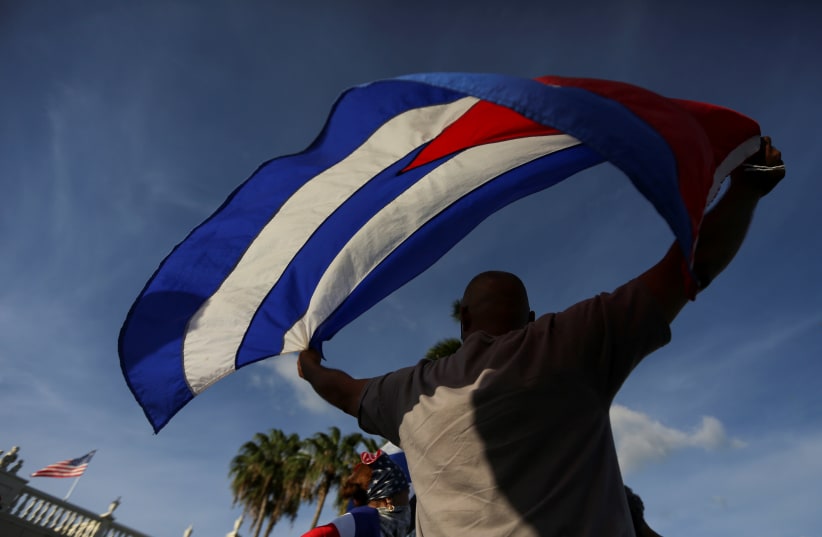The biggest protests in Cuba since Fidel Castro took power in 1959 have been taking place across the island in recent weeks, with thousands gathering in 40 cities and towns to chant “freedom.” The protests come as COVID-19 spreads in Cuba and amid continued food, electricity and medicine shortages.
But another major factor in the protests has been greater Internet access for residents of Cuba in recent years. Private ownership of computers was only legalized in 2008. But home access to the Internet remained mostly inaccessible until the end of 2018, when mobile Internet was permitted, and when private Wi-Fi in homes was legalized in 2019.
Increased access to social media led videos of the protests to spread, bringing more Cubans into the streets.
“With the advent of access through Cuba’s mobile network, approximately 50% of Cubanos have access now,” Alan Gross said this weekend. “I understand that participation in demonstrations grew very quickly because people learned what was happening through social media.”
Gross was arrested in 2009 and spent five years in a Cuban prison on charges of importing banned technology to set up a secret Internet connection for Cuba’s Jewish community. He answered questions via email over the weekend.
“In my opinion, the demonstrations would have come about regardless,” Gross said. “People there are simply fed up with the hard way of life perpetuated by Cuba’s failed system. Internet access was only one factor.”
Cubans thought their lives would improve under President Miguel Díaz-Canel, who took office in 2019 after Raúl Castro stepped down, he said.
However, “the opposite has occurred, and there seems to be a level of frustration with the government not seen since the revolution,” he added.
Gross described the courage Cuban people have shown in protesting as “incredible.”
“I do not believe the Cuban government is capable of simultaneously resolving health and economic problems on the island,” he said. “Consequently, I do not see Cubanos just giving up.”
Better Internet access is important for improving lives in Cuba, Gross said.
“Internet access is access to information, and information is food for the brain,” he said. “Without it, how can one develop and compete in the world today?”
Still, Gross did not think proposals made by some politicians, activists and commentators in the US that Washington should find a way to beam uncensored Internet into Cuba are tenable.
“Google spent a lot of time studying that in Cuba and elsewhere and found that it was not economically viable,” he said. “Also, the Cuban government would not give Google signal landing rights. There are numerous terrestrial technologies that would vastly improve connectivity in Cuba, but the Cuban government is obsessed with control.”
Gross said he did not think the US should pursue that plan without a partner in Cuba.
“I also believe that there is an opportunity for the US and Cuba to reengage diplomatically and in constructive ways for the sake of the Cuban people,” he said.
Gross and his wife, Judy, are retired and devote time to social and political causes. They immigrated to Israel in 2017 and divide their time between Israel and the US, spending most of the time in their Tel Aviv apartment. They have two grandchildren in Jerusalem, and they love visiting them, Gross said.
“Personally, I love being Israeli and walking around Tel Aviv, smoking a cigar and drinking a whiskey daily,” he said.
Gross also called on more people to get vaccinated against COVID-19.
